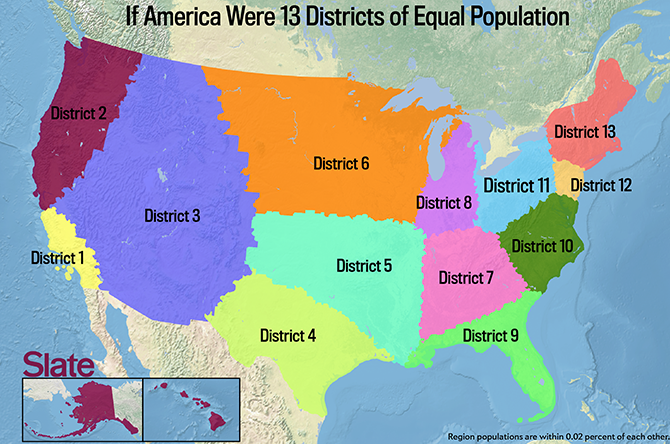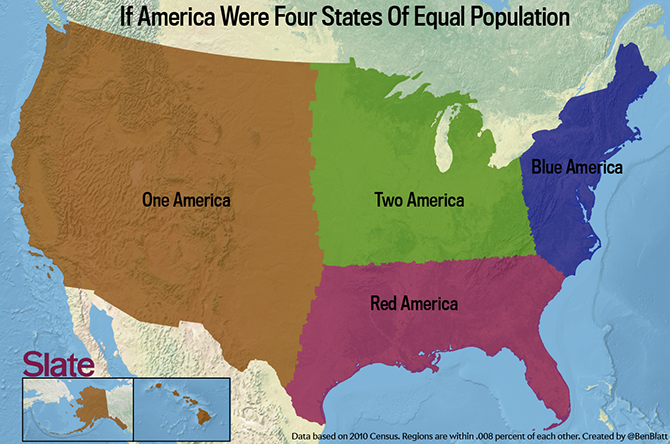
Slate came up with its own version, as well as more light-hearted versions, such as a division into 13 districts a la The Hunger Games and 4 states names after a popular Dr. Seuss classic:



The series went on to explore divisions based on sports players' homes, fast food/junk food joints, and other criteria. Perhaps the most fun is the interactive map that lets visitors click to see how much of the rest of the country is needed to comprise an area with the same population as, say, New York City.
Among the questions this raises is whether such an equal-population-based division would disrupt some advantage that may currently exist in Congress due to the small-state, large-state interactions there. What, if any, are those advantages? Would rural communities'/citizens' interests be better served in the current system or one of more demographically equitable representation? Would this make the House operate more like the Senate?
All of this is somewhat different from the related question as to whether there should be more representatives per citizen in the first place. Most functioning democracies on the planet have a much, much higher ratio of representatives to citizens, around 1 representative per 100,000 rather than the USA's 1 per 700,000. Granted such a ratio would result in about 3000 representatives... but then the Founders had originally envisioned a ratio of about 1 rep per 50k - 60k residents which would've made for about 6000 representatives today. That seems like a distressingly large number of Congresscritters. However it could also make room for more third-party candidates from smaller congressional districts... and that could challenge the entrenched power of the two major parties and heaven knows the US political systems needs more competition.


No comments:
Post a Comment